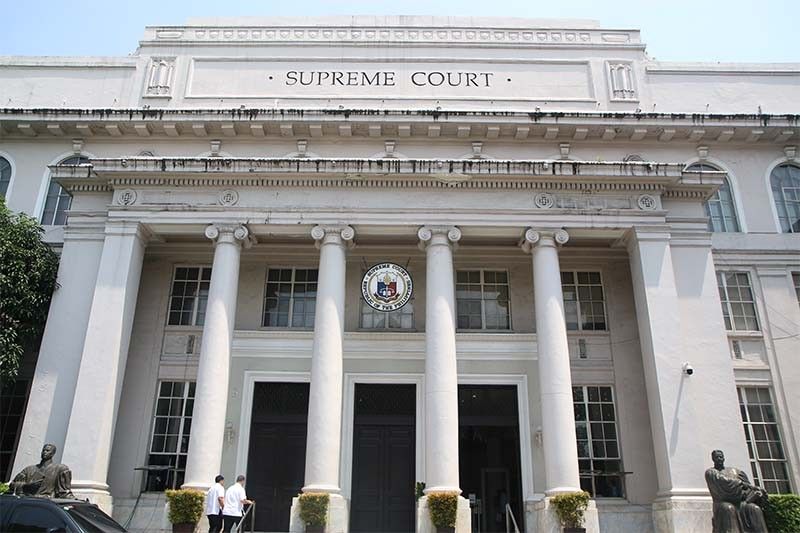SC aspirants quizzed on ABS-CBN franchise, court reforms amid pandemic

MANILA, Philippines — The Judicial and Bar Council asked aspirants for a seat at the Supreme Court to weigh in on one of the most controversial cases lodged before the tribunal: The Cease and Desist Order against broadcast giant ABS-CBN.
On Thursday, the JBC, panel tasked to screen applicants to the Judiciary and the Office of the Ombudsman, held an online public interview—its first—for four applicants to the seat vacated by retired Justice Andres Reyes Jr.
The first online public interview was held due to stringent health protocols in place to minimize physical interaction and curb the spread of the coronavirus.
As such, the panel also quizzed the aspirants on measures that they can recommend to help decongest detention cells amid a pandemic that is easily spread in high density areas.
Here are some of their answers:
Court of Appeals Associate Justice Ramon Bato Jr.
On ABS-CBN case: The CA justice said that, in his opinion, ABS-CBN cannot operate without franchise “under existing laws" and added that he believes that the expiration of a franchise is self-executing.
Bato also said that he does not agree that the Cease and Desist Order against the network is void even if ABS-CBN was not allowed to answer a show-cause order before it was ordered shut.
READ: Ex-DICT chief: NTC's cease-and-desist order vs ABS-CBN 'void from the beginning'
“The [National Telecommunications Commission] can motu propio (on its own) issue that order because of the expiration of franchise,” he said.
On pandemic measures, revision to notarial law: Bato said he is “open to the idea” to do away with physical appearance of parties and lawyers in notarizing documents.
"I think that idea is consistent with the president situation of the pandemic that we have to adopt certain measures," he said.
“If teleconferencing is allowed in hearing cases, [there is] no legal obstacle if we will amend that requirement of personal appearance," Bato added.
Court of Appeals Justice Priscilla Baltazar-Padilla
On ABS-CBN case: Padilla said that the congressional joint resolution to allow ABS-CBN to operate in the interim—pending a decision on franchise renewal bills—is not the proper remedy to the case.
“A resolution is a mere expression of the Congress’ sentiments or sense. It’s not a law,” Padilla told the panel.
The CA justice also said that she believes that holders of Philippine Depositary Receipts have “all attributes of ownership just like holders of stocks.”
She insisted that since foreign corporations are able to “invest huge sums of money” into a company through PDRs, these give them “some sort of control over management.”
Former Philippine Stock Exchange president Francis Lim earlier said that PDRs give their holders “the right to own a share, but that right is subjected to a law,” which may include the prohibition of foreign ownership of mass media.
RELATED: ABS-CBN's Philippine Depositary Receipt holders not owners, lawyer says
On judicial reforms in this time of pandemic: The CA justice said executive judges may be directed to make monthly visits to detention facilities and “find out the identities of prisoners, cases pending, duration of detention for possible release.”
Padilla also said that the executive branch can lift the suspension on the implementation of the Good Conduct and Time Allowance law, which cuts prison time for inmates as a reward for good behavior.
Can the death penalty help in court decongestion? Padilla disagreed, noting that even during the period where the Philippines imposed the death penalty, “I could not recall if there is any report that it has effect to the decrease of incidence of crimes.”
Court of Appeals Justice Edwin Sorongon
On ABS-CBN case: Sorongon said he believes the petition on ABS-CBN involves questions of facts, which is beyond the jurisdiction of the SC.
It was not, however, clear in the interpellation whether they were referring to Solicitor General Jose Calida’s quo warranto petition or ABS-CBN’s plea assailing NTC’s CDO.
He added: "As long as the issue there in the case, the determining of the issue is based on factual issues, then, even if it's of transcendental importance, then it will not be resolved by the Supreme Court."
On mass COVID-19 testing: Sorongon said he agrees with conducting “compulsory, COVID-19 mass testing” for the coronavirus. Companies should shoulder expenses for their workers.
Meanwhile, COVID-19 tests of those who are not private sector workers, should be shouldered by barangay or the government.
Court of Appeals Justice Nina Antonio-Valenzuela
On ABS-CBN needing a franchise: The CA justice was asked on Rep. Prospero Pichay’s opinion that ABS-CBN does not need a legislative franchise because this requirement only applies to public broadcasting companies.
She said: “The constitution says that a franchise is a privilege and not a right, and only Congress can grant the privilege and so if that law defines...only includes public corporations in the definition, I think that would be unconstitutional.”
On judicial reforms during pandemic: Valenzuela said that the courts may consider the filing of judicial affidavits in lieu of direct testimonies.
On termination of the Visiting Forces Agreement: She raised there is also an issue on whether this was a treaty or an executive agreement, but Valenzuela stated that "the president could terminate with the concurrence of Congress."
- Latest
- Trending





























